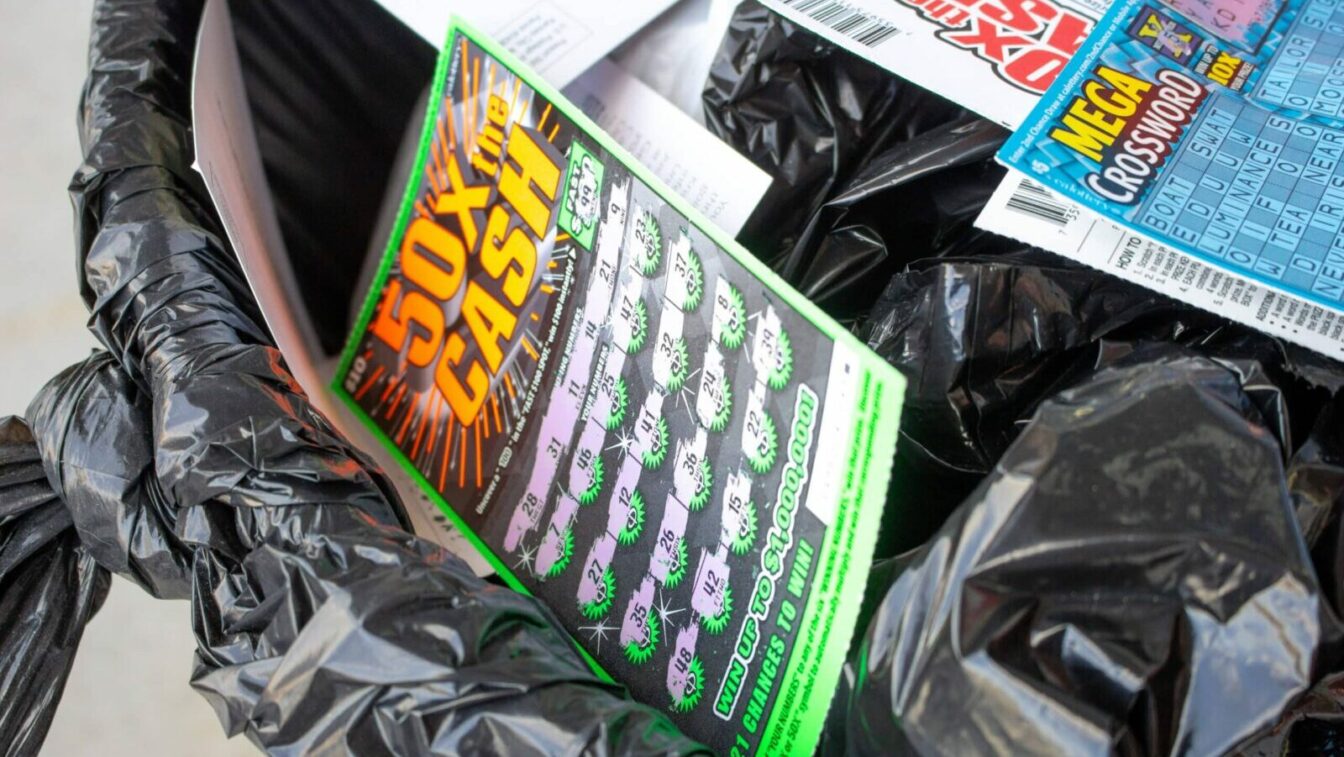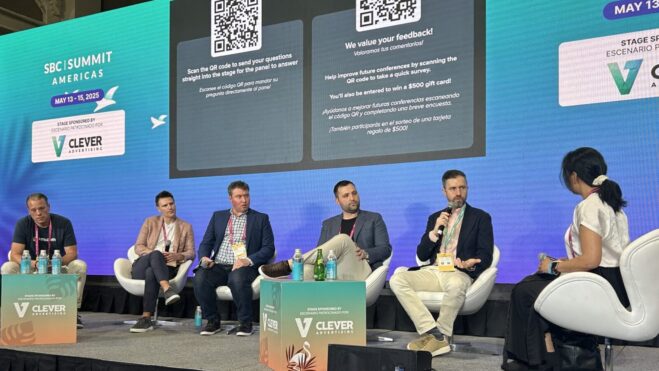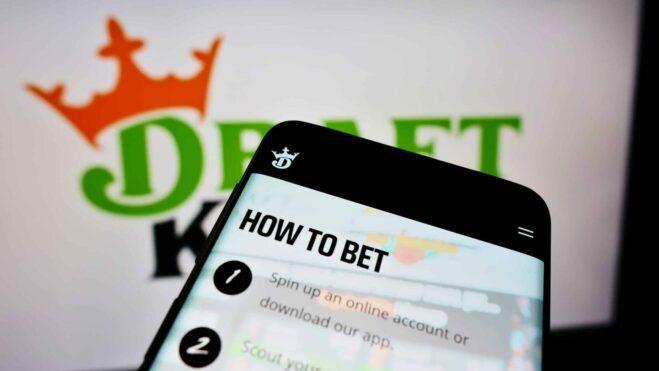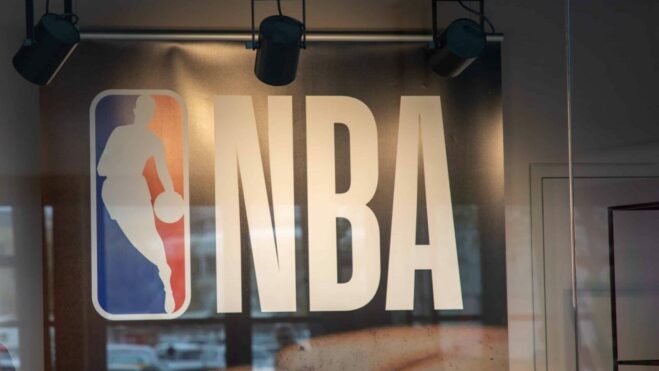Longtime Lottery Directors Oppose Anonymity Option For Winners, But They’re Losing That Fight
"The winner awareness proves that people are winning, and the less we can do that, the more people may start to distrust us."
4 min

For some people, part of the fun of winning a huge jackpot in the lottery is the chance to appear before TV cameras, photographers, and reporters and tell the unique circumstances of their situation.
But many others — most others, really — would rather not have everyone they have ever met become aware of their exalted new financial status. That’s why 18 states now allow winners of jackpots to remain anonymous.
At the East Coast Gaming Congress event in Atlantic City on April 17, Pennsylvania Lottery Executive Director Drew Svitko — who has more than 20 years of experience in that role — and former Missouri Lottery Director May Scheve Reardon each expressed objection to that approach.
“In our case, we very much rely on winner awareness to prove to Pennsylvanians that every day, regular Pennsylvanians are winning the lottery,” Svitko said. “If we’re not able to do that, if winners are allowed to remain anonymous, most will.
“And I think if that’s the case, we start to erode that very public glimpse of our integrity that is on display every time we do a drawing,” Svitko added. “The winner awareness proves that people are winning, and the less we can do that, the more people may start to distrust us. I think winner anonymity will hurt lotteries in the longterm.”
[Also See: Mega Millions Poised To Make Dramatic Ticket Price Increase From $2 To $5]Scheve Reardon ran the lottery in Missouri from 2009-2022 before becoming vice president of government relations for Pollard Banknote, a Winnipeg, Canada-based company that is a market leader in printing lottery tickets in North America.
“I was in that job for 13 years and I fought this bill [to allow anonymity for lottery winners] for 12 years,” Scheve Reardon said. “Then it passed in the 13th year. So you should buy your lottery ticket in Missouri if you don’t want your family to know that you won the lottery!”
Pendulum swinging the other way
All sarcasm aside, Svitko and Scheve Reardon appear to be on the losing end of this trend.
In fact, in Pennsylvania, the state Senate in September 2023 unanimously passed a bill allowing lottery winners to avoid disclosing their personal information.
“If you play the Powerball and you’re the big winner, you have a lot of decisions to make and I think one of those decisions shouldn’t be how you protect your family,” state Sen. Lisa Baker, the primary sponsor of the bill, told Fox43.com.
“In this day and age where we’re all concerned about identity theft and scams, you become an easy target for individuals to contact you and your families,” Baker added. “You don’t have the ability to shield you and your family from that if you are disclosed. It’s just a way that helps protect your financial interests without subjecting you and your family to intense pressure from those who would like to get a piece of your winnings.”
While that bill has yet to be signed into law, in 2021 a $516 million Mega Millions jackpot was won with a ticket purchased at a 7-11 in Bucks County, Pennsylvania. The winner? A five-member group known only as “Peace of Mind Trust.”
Pennsylvania law requires — unless arrangements are made otherwise by winners such as setting up a trust — the revealing of the lucky player’s first name, the first initial of their last name, and the county of residence as well as the store where the ticket was sold. The state lottery website also features a photo gallery of all the winners.
A complicating factor is that someone with a common first name who lives in a large county would find it much easier to remain anonymous than someone from one of Pennsylvania’s rural, sparsely populated counties who happens to have a unique first name.
The hiding of the last name no doubt cuts down quite a bit on the number of scammers who would otherwise descend on the winners. But a determined schemer likely can put the work in to successfully ferret out exactly who won.
Counterpoints galore
While there are legitimate concerns for a winner’s safety, it’s also true that the newly minted mega-millionaire can afford round-the-clock security for as long as they like.
Many lottery winners have been found previously to have been in dire financial straits. Revealing the identity of the winner would allow people with legitimate claims for compensation to collect the money they are owed.
Most media outlets prefer to know the name of lottery winners because sometimes powerful human-interest stories are unearthed.
In 2002, for example, a 73-year-old man won what was then the largest prize in New Jersey history: $165 million.
The man, Sonny Judson, said that he had always been lucky, beating a diagnosis of leukemia 30 years earlier when he had been given only months to live. He also acknowledged that he was fairly wealthy already, living in a 31-story high rise condominium in Cliffside Park in Bergen County, not far from the Hudson River and with striking views of the nearby Manhattan skyline.
Remarkably, Judson said he intended to continue buying lottery tickets whenever the mood struck him. He also suggested that he had been pushed out of his longtime job as a haberdasher — and that the two men in their 20s who subsequently hired him in spite of his advanced age were about to find out how financially lucrative that leap of faith would become.
(Finally, Judson noted that because the lucky ticket had been purchased at a convenience store across the street, residents of his high-rise understandably began speculating on elevator trips which neighbor might have won. He added that during one such exchange, because he was a close friend of one of the riders, he acknowledged that it was him. But everyone in the elevator just laughed, he recalled, so he said — with a twinkle in his eye — that from then on until the day he stepped forward, he told everyone that he had won, knowing that no one would believe him.)
All of that narrative underscores Svitko’s point about such publicity being a natural marketing boost for any state lottery. But that saga took place in the early years of the internet era, and even Svitko concedes that the industry trend is not heading in his direction.
The states that allow all winners to remain anonymous are Delaware, Kansas, Maryland, Mississippi, Missouri, Montana, New Jersey, North Dakota, South Carolina, and Wyoming.
Eight other states — Arizona, Georgia, Illinois, Michigan, Minnesota, Texas, Virginia, and West Virginia — allow winners to stay anonymous once a certain threshold is passed, ranging from a mere $10,000 in Michigan and Minnesota to $10 million in Virginia.





